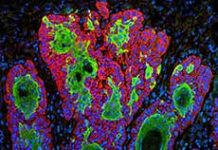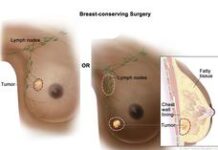On 14 October 2021, the European Medicines Agency (EMA’s) Committee for Medicinal Products for Human Use adopted a positive opinion, recommending the granting of a conditional marketing authorisation for the medicinal product amivantamab (Rybrevant), intended for the treatment of advanced non-small cell lung cancer (NSCLC) with activating epidermal growth factor receptor (EGFR) exon 20 insertion mutations.
The applicant for this medicinal product is Janssen-Cilag International N.V.
Rybrevant will be available as a 350 mg concentrate for solution for infusion. The active substance of Rybrevant is amivantamab, a fully human IgG1-based EGFR MET bispecific antibody that targets tumours with activating EGFR exon 20 insertion mutations (ATC code: L01FX18).
The benefits of Rybrevant are its objective response rate and response duration in patients with advanced NSCLC with EGFR exon 20 insertion mutations after failure of platinum-based therapy.
The most common side effects are rash, infusion related reactions, nail toxicity, hypoalbuminemia, oedema, fatigue, stomatitis, nausea, and constipation.
The full indication is:
Rybrevant as monotherapy is indicated for treatment of adult patients with advanced NSCLC with activating EGFR Exon 20 insertion mutations, after failure of platinum-based therapy.
Rybrevant should be prescribed by physicians experienced in the use of cancer therapies.
Detailed recommendations for the use of this product will be described in the summary of product characteristics, which will be published in the European public assessment report and made available in all official European Union languages after the marketing authorisation has been granted by the European Commission.
Summaries of positive opinion are published without prejudice to the Commission decision, which will normally be issued 67 days from adoption of the opinion.
A conditional marketing authorisation is granted to a medicinal product that fulfils an unmet medical need when the benefit to public health of immediate availability outweighs the risk inherent in the fact that additional data are still required. The marketing authorisation holder is expected to provide comprehensive clinical data at a later stage.






